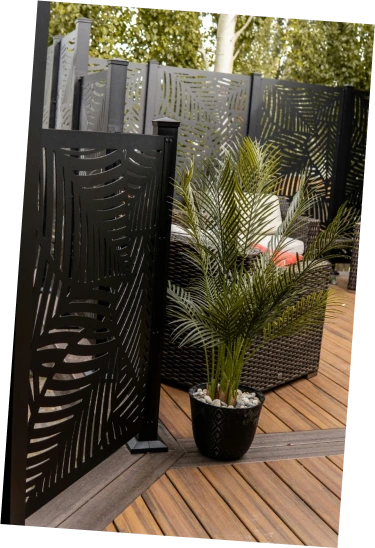Top Trends in Residential property management for 2024
Residential property management has evolved dramatically, with 2024 set to



Residential property management has evolved dramatically, with 2024 set to be a transformative year. Staying attuned to these changes is critical for companies like IncompassOnline. These trends shape not only the management strategies but also the success of residential properties. By embracing new tools and strategies, property managers can enhance tenant satisfaction, maximize returns, and keep properties ahead of market demands.
The Evolution of Residential Property Management in Recent Years
The past few years have seen property management evolve from traditional, manual processes to a tech-driven and tenant-focused industry. Digital communication, data analytics, and a growing emphasis on sustainability have reshaped property management into a responsive, tenant-centered model. As tenants expect higher service levels and eco-conscious options, property managers are adapting to meet these expectations with innovative, effective solutions.
Embracing Technology in 2024
Technology is no longer an optional investment; it’s a cornerstone of modern property management.
Virtual Tours and 3D Showcasing for Remote Leasing
Virtual tours allow prospective tenants to explore properties without visiting, a time-saving feature for busy renters and a powerful marketing tool for managers.
Smart Home Integrations for Tenant Convenience
Features like smart thermostats, lighting, and security systems give tenants control and enhance their living experience, while also improving energy efficiency.
AI in Tenant Screening and Background Checks
AI can conduct faster, unbiased screening of applicants, reducing vacancies and ensuring a better tenant fit.
Leveraging Data Analytics for Property Insights
Data analytics helps property managers monitor tenant behavior, predict trends, and optimize property performance based on real-time data.
Sustainability Takes Center Stage
Sustainability is a top priority for 2024, with tenants increasingly preferring eco-friendly living options.
Eco-Friendly Upgrades: What Tenants Expect
Tenants expect sustainable options, from recycling programs to energy-efficient designs. Property managers are focusing on upgrades that reduce environmental impact.
Water Conservation Tech and Waste Management
Water-saving fixtures, irrigation systems, and effective waste management practices help properties stay green and save resources.
The Rise of Remote Property Management
With more technology supporting remote management, the industry is embracing this flexible approach.
Digital Communication: Meeting Tenants’ Needs Online
Chat apps and email updates provide tenants with direct access to property managers, creating a more responsive management experience.
Virtual Inspections: Maintaining Properties from Afar
Virtual inspections allow property managers to assess and manage properties remotely, reducing the need for in-person visits.
Mobile Apps for Maintenance Requests and Rent Payments
Apps streamline maintenance requests and rent payments, offering convenience to tenants and simplifying tracking for managers.
Cloud-Based Document Storage for Easy Access
Storing leases, contracts, and documents in the cloud ensures quick access and secure data storage.
Automating Routine Management Tasks with AI
Automation, from scheduling maintenance to processing invoices, helps managers save time and reduce operational costs.
Personalized Tenant Experiences
Tenants today want more than just a place to live—they seek community and convenience.
Creating a Sense of Community through Events and Apps
Community events and social apps can foster connections among tenants, increasing retention and satisfaction.
Customizable Lease Options for Flexibility
Flexible leasing terms appeal to a range of tenants, especially those with non-traditional work or travel schedules.
Enhanced Tenant Support with Chatbots and AI Assistants
Chatbots provide instant responses to tenant inquiries, enhancing customer service around the clock.
Tenant Feedback and Reputation Management Tools
Soliciting and acting on feedback helps managers improve services, leading to better reviews and reputation.
Data-Driven Decision-Making in Property Management
Data insights are driving smarter decision-making in property management.
Predictive Analytics for Tenant Retention Strategies
Predictive analytics help managers identify at-risk tenants and address their needs proactively to improve retention.
Market Trends: Analyzing Data to Set Competitive Rents
Data on market trends and tenant preferences enables managers to set competitive rents and reduce vacancies.
Using Data to Improve Property Marketing Efforts
Marketing strategies informed by data insights target the right demographics, improving ad ROI and tenant acquisition.
Focus on Safety and Security Upgrades
Safety remains a priority for property managers and tenants alike.
Smart Security Systems: Cameras, Alarms, and Sensors
High-tech security features such as smart cameras and alarms ensure tenant safety and peace of mind.
Digital Keyless Entry for Secure and Easy Access
Keyless entry offers secure access and eliminates the need for physical keys, adding convenience for tenants.
Enhancing Tenant Health and Wellbeing
Health and wellbeing are central to tenant satisfaction.
Air Quality Monitors and HVAC Upgrades for Healthier Air
Improved HVAC systems and air quality monitors ensure healthier indoor environments for tenants.
Green Spaces and Outdoor Amenities for Relaxation
Outdoor areas with greenery promote relaxation, reduce stress, and create an inviting environment.
Noise Reduction Solutions for a Peaceful Environment
Soundproofing and other noise reduction methods contribute to a quieter, more comfortable living space.
Adapting to Short-Term Rental Trends
As the popularity of short-term rentals grows, managers are adjusting policies.
Legal Considerations for Short-Term Leases
Managers must stay informed about local laws governing short-term rentals to ensure compliance.
Managing Furnished Apartments for Flexibility
Furnished units allow flexibility for tenants seeking short-term stays, broadening the property’s appeal.
Adopting Hybrid Models for Mixed-Use Spaces
Hybrid models combine residential and short-term rental options, optimizing occupancy and revenue.
Residential property management is a dynamic industry, requiring managers to stay ahead of emerging trends. By adopting new technologies, embracing sustainability, and personalizing tenant experiences, IncompassOnline can lead the industry in 2024. Adapting to these trends is key to delivering exceptional service, meeting tenant expectations, and securing long-term success.


